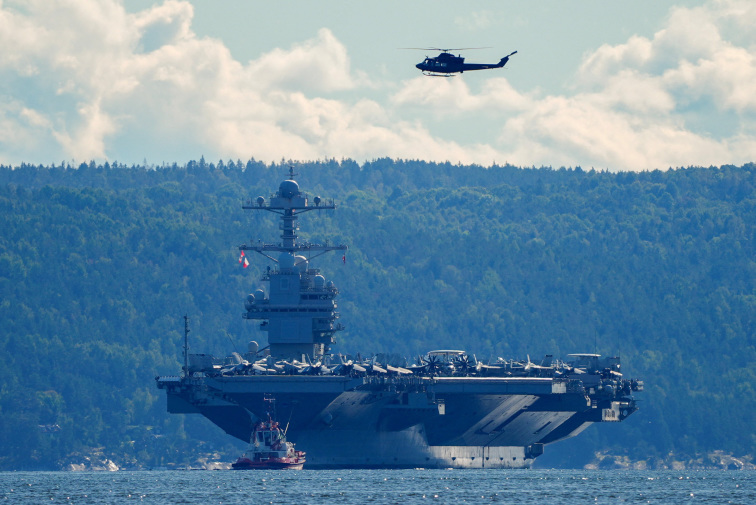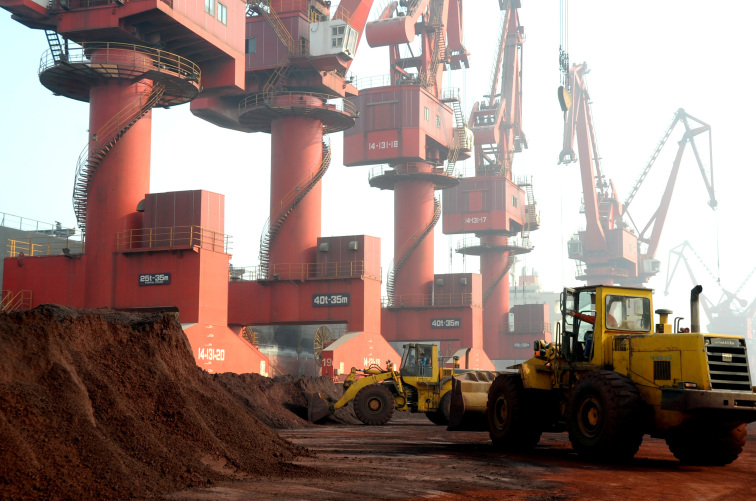On June 24, 2024, a Japanese mother and child were attacked and injured by a man at a bus stop in Suzhou. A Chinese woman, Hu Youping, stepped in to stop the assailant, was severely wounded, and sadly passed away. The Japanese Embassy in China issued a statement honouring Hu Youping’s noble act and flew its flag at half-mast in mourning. (Composite screenshot)
[People News] On the 25th, U.S. President Donald Trump held a phone call with Japanese Prime Minister Sanae Takaichi to discuss topics including relations with the Chinese Communist Party (CCP). This was Takaichi’s first conversation with Trump since her remarks on Taiwan triggered a diplomatic clash between China and Japan. The day before, Trump had spoken with CCP leader Xi Jinping.
1. Trump Holds Separate Calls With Takaichi and Xi Jinping
Takaichi told reporters that day: “I spoke with President Trump at his invitation,” adding that “including last night’s U.S.–China leader call, President Trump explained the recent state of U.S.–China relations.” She also said of their conversation, “We confirmed the close ties between our two countries,” and that “President Trump said Sanae Takaichi is a very good friend and can call him anytime.”
Earlier this month, during a Diet session, Takaichi stated: “If Beijing attacks Taiwan, Japan may respond militarily,” which drew strong opposition from the CCP.
However, Takaichi did not clarify whether she and Trump discussed the China–Japan dispute during their call. She merely said, “As the content of the call is part of diplomatic dialogue, it is not appropriate to go into detail.” Kyodo News reported that Takaichi and Trump “likely discussed follow-up measures based on the U.S.–China leader call.”
Xinhua reported on the previous day’s U.S.–China call, stating: “China contributed significantly to the victory of World War II, and the U.S. understands the importance of the Taiwan issue to China.” Analysts note that these remarks were directed at the recent escalation of China–Japan tensions. Yet Trump’s social-media post after the call made no separate mention of Taiwan or the China–Japan tensions.
This makes one thing clear: if Taiwan is attacked by the CCP and Japan intervenes militarily, the U.S. will inevitably be drawn in as well. Thus, a forcible takeover of Taiwan would be a U.S.–China war, and the CCP currently lacks the strength to challenge the United States. Xi Jinping, who comes from a “high-level cadre family,” would only dare attempt a forceful unification if he had absolute advantage. Therefore, Taiwan is safe. The CCP has long known this—so why stir up trouble? And what lies behind Takaichi’s “Taiwan contingency” remarks?
2. CCP Officials Perform ‘Wolf Warrior’ Diplomacy to Seek Promotion and Profit
CCP diplomats have their own calculations when they perform “wolf warrior” stunts.
On the 18th, Japan’s Director-General of the Asian and Oceanian Affairs Bureau, Masaki Kanai, met in Beijing with Liu Jinsong, Director-General of the Asian Affairs Department of the CCP Foreign Ministry. After the meeting, a 20-second clip—appearing to show Liu reprimanding Kanai—spread rapidly on Chinese social media. Analysts say the edited video was released by Beijing to embarrass Japan.
In reality, Liu Jinsong is a protégé of Foreign Minister Wang Yi. Early in his career, under Wang’s guidance, he quickly rose to the rank of minister-counsellor, in charge of intelligence gathering and operational management in his assigned countries, and he spent three years stationed in Japan. But compared with fellow officials of his generation—Hua Chunying and Qin Gang—he lags far behind, and has yet to secure a minister-level position. After the 20th Party Congress, Xi promoted Qin Gang and Liu Jianchao to serve as foreign minister and head of the International Liaison Department, respectively, in an effort to counterbalance Wang Yi.
Meanwhile, Wang Yi’s diplomatic network has long been exposed as a vehicle for laundering money overseas and collecting kickbacks from Xi Jinping’s massive foreign-aid budgets. To prevent his secrets from being exposed, Wang used the intelligence system to take down Qin Gang and Liu Jianchao.
Wang Yi’s “wolf warrior” diplomacy thrives on theatrics, manipulation, and lack of accountability. Although it can deceive Xi—who lacks overseas experience—Wang’s former domain, the Asia Department, became overwhelmingly dominant, making Xi fear it could become yet another political faction. To weaken Wang’s influence, Xi has held back promotions for Liu Jinsong, who comes from this department. Feeling sidelined and eager for a major promotion at the 21st Party Congress, Liu staged this recent performance. The same motivation applies to China’s ambassador to Japan, Xue Jian, who made “beheading” remarks.
After securing his third term, Xi feels increasingly insecure about his power. To consolidate his rule, he continually elevates those adept at internal struggle, infighting, and showing loyalty through extreme “wolf warrior” statements. In such a political environment, many officials have discovered that extreme behavior and outrageous rhetoric can lead to rapid promotion.
But how many of them truly consider the consequences? What impact might such wolf-warrior diplomacy have? Could it push the country into conflict or even war? Could ordinary citizens suffer as a result? And as for the enormous funds Xi has poured into foreign affairs—will any of it ever be recovered? Nobody seems interested in asking.
(First published by The People News)
△










News magazine bootstrap themes!
I like this themes, fast loading and look profesional
Thank you Carlos!
You're welcome!
Please support me with give positive rating!
Yes Sure!